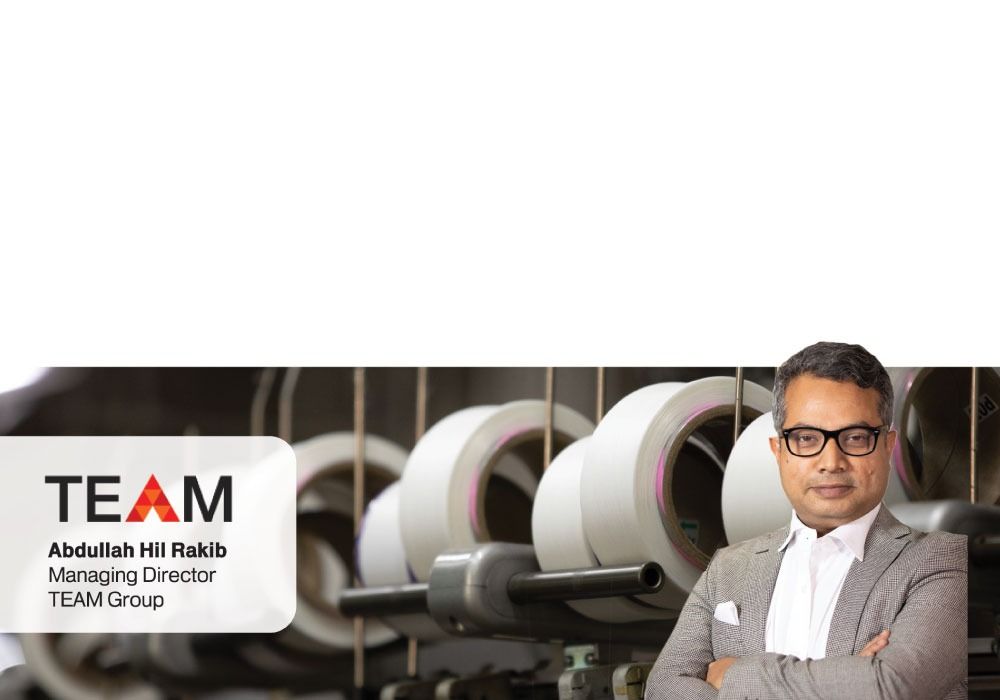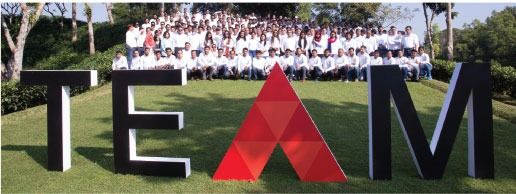- info@ficci.org.bd
- |
- +880248814801, +880248814802
- Contact Us
- |
- Become a Member
- |
- |
- |
- |
- |

It goes without saying readymade garment industry is the backbone of the economy of Bangladesh. Once termed as bottomless basket Bangladesh now is a box full of wonders. In its path of economic and social development the readymade garment industry played a pivotal role. Bangladesh readymade garment industry emerged as the 2nd largest apparel exporting country of the world within just four decades. Bangladesh's apparel exported to over 167 countries of the world predominantly to EU and US. The apparel industry contributes around 11% of the GDP of Bangladesh and employs around 4 million workers. The industry caters to almost all the major apparel brands of the world.
But the journey was never easy till date, over the 4 decades the industry faced several challenges and every time the industry overcame those challenges and stood even stronger than before. Following the Rana Plaza collapse in 2013, the sector underwent a substantial transformation, particularly in terms of workplace safety. With the help of the Accord, Alliance and National Action Plan, producers in Bangladesh invest in adhering to new building codes and improving workplace safety standard. We have established the RMG Sustainability Council (RSC) to strengthen local capacity as part of a national safety monitoring framework. The council's governance is inclusive, with an equal representation of industry bodies, brands, and unions working together. Thanks to the unparalleled efforts made by the RMG industry of Bangladesh over the years, the industry has earned global recognition. McKinsey & Company has hailed Bangladesh's RMG sector as "a front-runner in transparency on factory safety and value-chain responsibility," while QIMA ranked Bangladesh second in its 2020 Ethical Manufacturing Audit.

The garment industry has not just contributed to the economy of the country, but also significantly changed the lives of millions of workers. According to a study of 2020 by Asian Center for Development an individual worker earns between 9,500 and 30,000 taka per month, including overtime, from 2014 to 2020, their family income has grown by 7% annually. Between 2013 and 2024, the industry raised the wages of its workers thrice. The current minimum wage stands at Tk. 12,500 per month, up from Tk. 5,300 in 2013, on top of that workers are now enjoying 9% annual increments. Despite all these garment workers unions continue to advocate for further wage revisions and the industry is trying to compensate the workers to the best possible extent. The readymade garment industry of Bangladesh is part of the global fashion industry value chain and therefore the industry must adhere the laws and regulations of EU, US, Canada and other developed countries of the world. In recent time a huge legislative change has occurred in the strategic markets of Bangladesh Human Rights and environmental due diligence along with pressing issues like climate action, sustainability reporting, circular economy, transparency etc. All these legislative frames will further ensure that the negative externalities of business on society and environment is reduced. But to comply with all these legislative measures the overhead cost will be increased significantly.
In recent times we have seen the cost of doing business has increased significantly, last 5 years we have experiences over 50% rise in cost of production especially the cost of natural gas increased by 286.5%, electricity price increased by 33.5%, diesel price increased by 68%, freight cost increased by 50% besides minimum wage. All these eroding the competitiveness of the RMG industry of Bangladesh.
Over the past decade, Bangladesh's RMG sector has made impressive progress in tackling the challenges of growth-particularly in diversifying customers and products, improving supplier and workforce performance, and strengthening compliance and sustainability.
Garment industry serves as a cornerstone of the national economy and stands as the largest formal sector employer, particularly for women. Around 60% of garment workers are women, predominantly aged between 18 and 30. As a result, the industry has played a vital role in empowering women, alleviating poverty, and driving societal transforma- tion. It has contributed to significant positive changes, such as a reduction in early marriages and motherhood, improved female literacy rates, slower population growth, and heightened awareness of environmental and personal hygiene. Additionally, the RMG sector creates vast economic opportunities through thousands of backward and forward linkages.

Regardless of all the odds the RMG industry is embracing sustainability and investing in eco-friendly business practices. Bangladesh is the home to the highest number of green factory buildings certified by the USGBC's Leadership in Energy and Environmental Design (LEED). Currently Bangladesh RMG industry have 230 LEED Green Factories and 54 out of top 100 green factories are in Bangladesh. Wet processing factories are investing in state-of-the-art effluent treatment plants (ETP), water efficient dyeing machines, using ZDHC (Zero Discharge of Hazardous Chemicals) approved chemicals, automatic chemical dosing system, laser technologies, ozone technologies to minimize the environmental impact of the production. The RMG industry of Bangladesh is also showing incremental improvement in climate action by investing in solar renewable energy and energy efficient machines to reduce the GHGs emissions of the production.

We are adopting several eco-friendly technologies, such as rainwater harvesting, daylight saving, and solar energy, to conserve natural resources and reduce environmental pollution. For supply chain transparency and traceability, factories are leveraging advanced tools like lot for sewing analysis, RFID for production and inventory tracking, smart dyeing systems, automatic dosing, and mobile apps for quality control. Automated screening tools detect organic and zero-hazardous chemicals, further reducing water and energy use. Most importantly, our ability to produce world-class products sets us apart. With a focus on meticulous product development and solid commitment to on-time delivery, Bangladesh maintains a competitive edge in the global apparel value chain.
The industry now stands at a crossroads it is mature and capable of grow further and materialize its full potential but to reach there the industry need support from the government, financial institutes, workers unions, development partner and most importantly our buyers and brands. In this journey towards excellence, we all need to understand the pain points of the industry, if it is only owned by the manufacturers and investors, we will not be able to reach the epitome of success as an industry or country at large. FICCI Monthly Bulletin |





